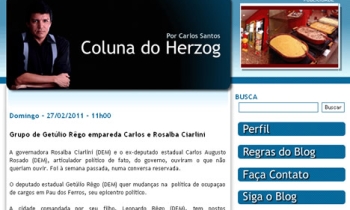News Corp., launching a two-pronged offensive, is planning to take its case for buying Dow Jones & Co. to the media company's controlling shareholders, the Bancroft family, and directly to the newsroom of the company's flagship, The Wall Street Journal.
The media conglomerate run by Rupert Murdoch is considering making its case to journalists detailing the company's plans for capital investment, people close to News Corp. say. News Corp. would address a number of issues in its discussion, such as beefing up staffing levels in international news bureaus and putting more capital behind the company's electronic properties, said one person close to News Corp. The plans to talk to journalists are preliminary, this person said, but would be aimed at fostering "recognition and desire about having a dialogue with a very important constituency" in Mr. Murdoch's takeover attempt.
Any campaign would be structured to win over both the Bancroft family and the company's reporters and editors, some of whom have begun agitating against the $60-a-share takeover bid from News Corp. and its chief, Mr. Murdoch. The Bancroft family, which controls 64.2% of Dow Jones's voting power, is opposing News Corp.'s $5 billion bid. The family has said that members accounting for more than 50% of the overall voting power oppose the deal.
News Corp.'s strategic efforts came as a group of Journal reporters yesterday urged the newspaper's journalists to write individual letters opposing Mr. Murdoch's offer to the three Bancroft family members on the Dow Jones board. Paul E. Steiger, the Journal's managing editor, said that any journalists who wrote letters advocating opposition to the offer wouldn't be involved in the coverage of News Corp.'s bid.
News Corp. plans to take a lower-key approach toward the family, letting some time pass before it begins any serious outreach, according to two people with knowledge of the company's plans. Its hope is to let the family sort out its own viewpoints before any discussions begin, these people said. Merrill Lynch & Co., the big brokerage firm that represents the Bancrofts, recently made a presentation to the family on all of its options but offered no recommendation. News Corp. couldn't be reached for comment.
A number of people associated with the family emphasized how complicated the deliberations have become. One reason is that the older Bancrofts have been more engaged over the years with the company and its management. Yet even some members of the younger generation are reluctant to relinquish the family's stewardship of a newspaper they consider a pillar of American democracy, and they have voiced concern about the Bancroft clan's legacy if they do so. "But if the number gets too high up there, what can you do?" said one person familiar with the deliberations.
Michael Elefante, the trustee representing the Bancroft family's interests and a Dow Jones director, didn't return calls seeking comment.
Persuading more members of the Bancroft family to favor the News Corp. proposal will be especially crucial for Mr. Murdoch, given the opposition of another group of significant shareholders, the Ottaway family. According to Dow Jones's most recent proxy statement, the Ottaways own 6.2% of the company's Class B supervoting stock.
Ottaway Newspapers has been an important profit center and financial anchor for Dow Jones for decades. It was built by James H. Ottaway Sr., a charismatic newspaperman who turned a stable of small-town papers throughout the Northeast into a national chain. Dow Jones bought the papers in 1970 to help offset cyclical declines in national advertising at The Wall Street Journal and Barron's. The strategy worked well even in the last recession: In 2002, Ottaway contributed much of Dow Jones's operating profit.
James H. Ottaway Jr., who later ran Ottaway and served as an officer and director of Dow Jones, has also been a key source of support for Dow Jones management. A former newspaper reporter, Mr. Ottaway is famed for his rumpled suits and fierce commitment to independent journalism. He endows fellowships at the American Press Institute to promote independent journalism in emerging democracies. And he has been a longtime champion of the Journal's independence, saying that the company's future depends first and foremost on the quality and integrity of its journalism.
Yet in recent years, as the newspaper business has fallen out of favor with shareholders, the Ottaway chain has become less prominent within Dow Jones. Last year, Dow Jones sold off six of its Ottaway papers. Mr. Ottaway was opposed to the move, arguing that the Ottaway papers added important earnings stability to the company, some executives say.
While retired from the company since last year, Mr. Ottaway remains an important force through his shareholdings.
Though large and far-flung, the Bancroft family has stayed connected through its association with the Journal. Unlike other big newspaper families, such as the New York Times's Sulzbergers and the Washington Post's Grahams, the Bancrofts don't have an unofficial leader.
For the most part, the members get along well, says one person close to the family. There are no factions that don't speak with one another, for instance. In addition to their gatherings at Dow Jones meetings, they meet regularly in Boston, where their law firm is based. In 2002, Dow Jones threw them a dinner party at the St. Regis to mark the 100th anniversary of Clarence Barron's acquisition of the company.
The Bancrofts reside everywhere from Hawaii to Rome. One, Martha Robes, spends much of the year on a boat. But many of them seem most at home in New England.
That New England bent has favored modesty above all else. Jeff Stevenson, a racer of powerboats and grandson of former Dow Jones board member Jane Bancroft Cook, says the family never paraded its association with the Journal. "Obviously my grandma was big into it and my parents were, but it was sort of secretive. We didn't know about it until we were older," he said in an interview Wednesday.
There's a major difference between the pressure on Dow Jones now and a decade ago, when at least two dissident family members raised questions about how they could improve the return on Dow Jones's laggard shares.
Now, at least one of those dissidents, Elisabeth Chelberg, formerly Elisabeth Goth, is no longer leading the charge to sell the company. She sold some of her Dow Jones shares in recent years, say people close to the situation. Ms. Chelberg couldn't be reached for comment.
The alliances within the Bancroft family have shifted in the years since Ms. Chelberg's quest for changes. William C. Cox. Jr., a long-time Dow Jones board member, has stepped down.
One family member who has played a more prominent role in recent years is Christopher Bancroft. Mr. Bancroft, 55 years old, is one of the family's three representatives on the Dow Jones board. He also serves as a trustee for 19% of the family's Class B shares. Mr. Bancroft lives in Texas, where he runs a small investment firm and is opposed to the News Corp. offer, according to a person familiar with the matter. Mr. Bancroft declined to comment.
Write to Dennis K. Berman at dennis.berman@wsj.com, Matthew Karnitschnig at matthew.karnitschnig@wsj.com and Susan Pulliam at susan.pulliam@wsj.com









